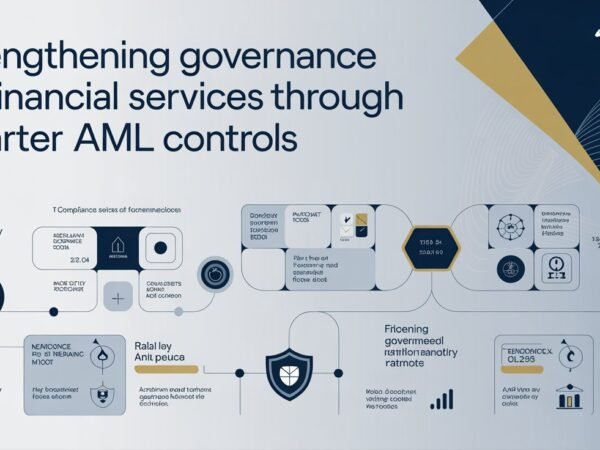Running a business isn’t just about strategic maneuvers and financial management; it involves maintaining robust mental well-being.
Entrepreneurs often face a unique set of pressures, from the isolation of steering a company alone to the relentless demands of business growth, which can take a significant toll on their mental health.
This blog underscores the importance of mental well-being and why it should be a priority for every business owner to ensure they are as healthy as their enterprise demands.
The Hidden Toll of Entrepreneurship
The entrepreneurial journey is often romanticized as a path of freedom, innovation, and success. Still, the reality for many business owners includes significant psychological pressures that can impact mental well-being. Many entrepreneurs work long hours, with about 33% working more than 50 hours a week and a considerable portion exceeding 60 hours.
The strain of such a demanding schedule, coupled with the high stakes of owning a business, contributes to mental health challenges. Studies reveal that a substantial number of entrepreneurs report experiencing conditions such as depression, leading many to seek treatment for depression and anxiety. This underscores the importance of proactively addressing mental health within the entrepreneurial community to sustain personal well-being and business success.
The Double-Edged Sword of Business Ownership
Benefits of Entrepreneurship
- Professional Autonomy: Entrepreneurs make business decisions, giving them control over their work lives.
- Creative Freedom: They can bring their innovative ideas to life.
- Flexible Scheduling: Entrepreneurs can set their work hours, allowing for a more adaptable lifestyle.
- Potential for Financial Growth: There is a possibility for significant financial rewards if the business succeeds.
- Ability to Pursue Passion Projects: Entrepreneurship provides an opportunity to work on projects they are passionate about.
Challenges of Entrepreneurship
- Financial Uncertainty: Income can be unstable and unpredictable.
- Decision-Making Pressure: Entrepreneurs face the stress of making critical business decisions alone.
- Extended Working Hours: Many entrepreneurs work well beyond the typical 40-hour workweek.
- Social Isolation: Running a business can be lonely, with fewer opportunities for social interaction.
- Responsibility for Others’ Livelihoods: Employees’ financial well-being is a heavy responsibility.
Impact on Business Performance
Mental well-being directly influences business outcomes in several critical ways:
| Mental Health Factor | Business Impact | Performance Metric |
|---|---|---|
| Emotional Balance | Better decision-making | 35% improved strategic choices |
| Stress Management | Enhanced productivity | 21% increase in output |
| Mental Clarity | Improved creativity | 40% boost in innovation |
| Psychological Safety | Lower turnover rates | 50% reduction in staff departures |
| Work-Life Balance | Higher team morale | 45% better employee satisfaction |
Critical Business Areas Affected by Mental Health
Leadership Effectiveness
- Decision-making Quality: Leaders must be able to make well-informed and timely decisions, which significantly impacts organizational success.
- Strategic Planning Capability: Effective leaders are skilled in setting long-term goals and developing strategic plans that align with the mission and vision of the organization.
- Team Motivation and Guidance: A crucial role of leadership is to inspire and motivate team members to achieve organizational objectives.
Operational Efficiency
- Daily Task Management: Efficient leaders manage daily tasks effectively, ensuring smooth operations and consistent progress toward goals.
- Resource Allocation: Optimal resource allocation, including time, budget, and workforce, is essential for maximizing productivity and efficiency.
- Process Optimization: Leaders should strive for continuous improvement by streamlining processes and systems to enhance performance and reduce waste.
Relationship Management
- Client Interactions: Maintaining positive and productive client relationships is vital for business success and growth.
- Employee Communications: Effective communication with employees ensures clarity, fosters a positive work environment, and enhances employee engagement.
- Stakeholder Relations: Leaders must effectively manage relationships with all stakeholders, including investors, partners, and suppliers, to support the organization’s overall strategy and reputation.
Warning Signs Business Owners Should Notice
It is acceptable to identify the reason for the change in behavior as stress and burnout. Still, it must be noted that it can be expressed in several physical and emotional symptoms. At some point, an individual may start complaining of frequent migraines, disrupted sleep, changes in food intake, chronic tiredness, and stiffness of the muscles. These reasons are usually the excessive physical load on the body, which requires rest or a change of activity.
On the other hand, the signs are irritability, trouble with attention focused on a particular task, excessive concern, anxiety, stress, and temper changes. Such symptoms can impair a person’s work performance and social relationships. Recognizing these behavioral changes is crucial in managing stress and avoiding burnout, as it preserves both emotional and physical well-being.
Practical Strategies for Mental Well-being
- Establish Clear Boundaries
- Set specific work hours.
- Create a dedicated workspace.
- Define non-negotiable personal time.
- Implement digital disconnection periods.
- Build Support Systems
- Join entrepreneur networks.
- Engage with mentors.
- Participate in business groups.
- Maintain personal relationships.
- Implement Healthy Practices
- Maintain regular exercise routines.
- Follow a proper sleep schedule.
- Follow a balanced diet.
- Practice mindfulness techniques.
- Take regular breaks during the workday.
- Seek Professional Support
- Schedule regular check-ins with mental health professionals.
- Pursue executive coaching.
- Consider business counseling.
- Participate in stress management training.
Creating a Mental Health-Positive Business Culture
Consider implementing a balanced approach to effectively managing the well-being of your team and yourself. For your team, introduce flexible working arrangements to allow for a healthier work-life balance and provide access to mental health resources to support their well-being. Ensuring open lines of communication and organizing team-building activities can enhance team cohesion and morale.
Resources and Support Networks
Leveraging professional organizations and online resources can significantly aid professional and personal development. Contact local business associations, entrepreneur support groups, professional coaching networks, and mental health organizations for tailored support and networking.
Additionally, explore online resources such as mental health apps, meditation platforms, professional development courses, and virtual support communities to enhance your skills and well-being remotely. These tools provide a well-rounded approach to growth in today’s digital age.
Building Long-term Resilience
For personal development, emotional intelligence training can enhance interpersonal skills, while stress management techniques help maintain composure under pressure. Time management skills ensure productivity, and improving communication can lead to better collaboration.
Implementing automated processes and establishing delegation protocols streamline operations in business systems. Developing crisis management plans and a support staff structure are essential for organizational resilience.
How to Avoid Burnout
Start with clearly defined work-life boundaries to avoid burnout and maximize health and productivity. These include, but are not limited to, setting working hours and establishing a proper place for completing tasks. It is recommended to take necessary frequent breaks to break free from pressure and re-energize oneself, whether when one shifts from the workplace to a different part of the same building or for the day altogether.
Taking care of oneself also includes practicing healthy eating habits, getting sufficient rest, and participating in moderate physical activity. Assigning tasks will help manage workloads and prevent one from experiencing such high levels of stress.
Wrapping Up
The ability to effectively deal with stress and prevent burnout is critical for one’s health and increased work output. By clearly defining limits, promoting yourself, and practicing self-awareness, you can conveniently handle the pressures and demands of your time and energy. It is important to note that obtaining help from a trained professional whenever the pressure becomes too much is not a point of weakness but rather a sign of courage.
Frequently Asked Questions
Why should employers care about mental health?
Employers need to be aware of mental health issues. The absence of mental health care considerations will worsen their productivity and level of involvement and commitment from workers and lower the rates of absenteeism, helping create a positive working environment.
Why is it important to care about your mental health?
Taking care of one’s mental and emotional health improves well-being and life satisfaction. It also helps when experiencing stress or tension and functioning in daily life and activities.
What is the biggest killer of an entrepreneurial mindset?
The most destructive behavior affecting entrepreneurs is the fear of losing, which nips innovation in the bud, curtails the willingness to take risks, and may nip budding business ideas in the bud.
Do Read: 6 Insights into Effective Leadership in Today’s Market













